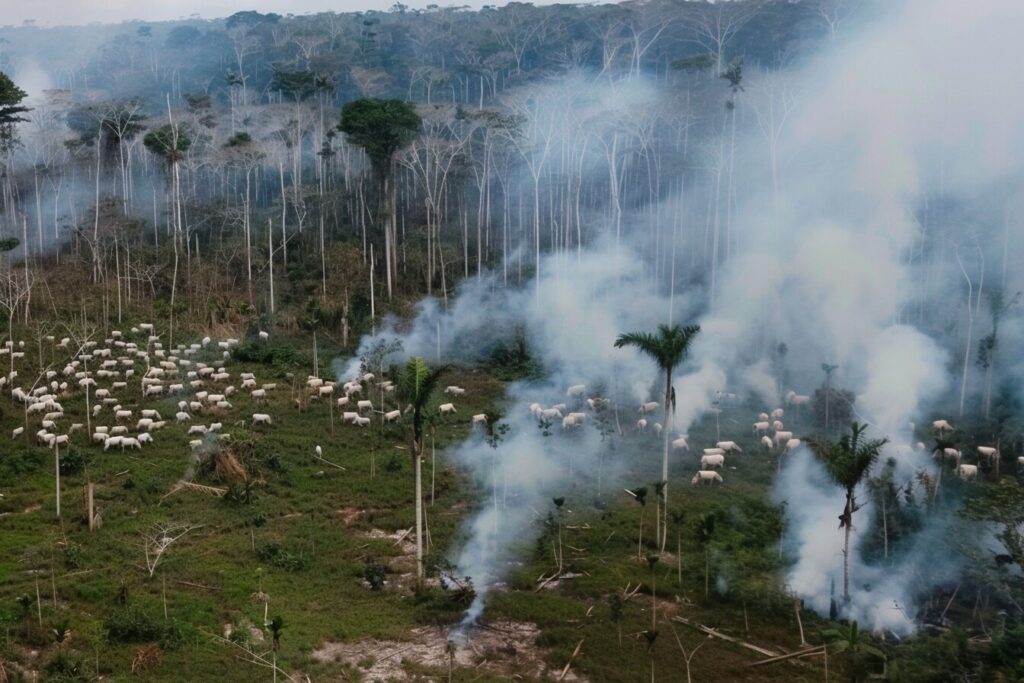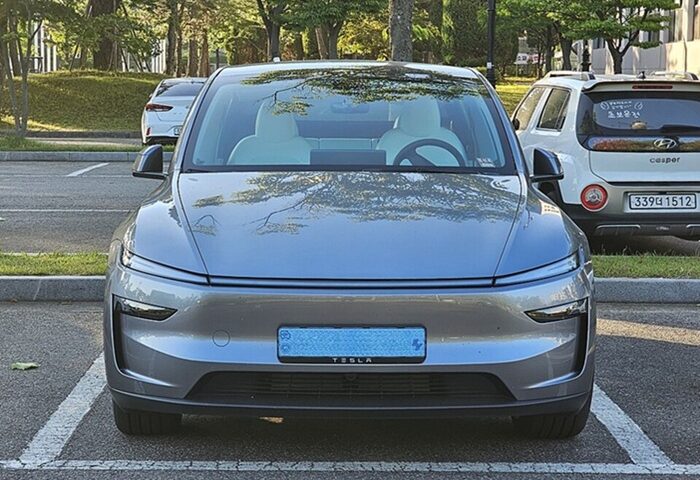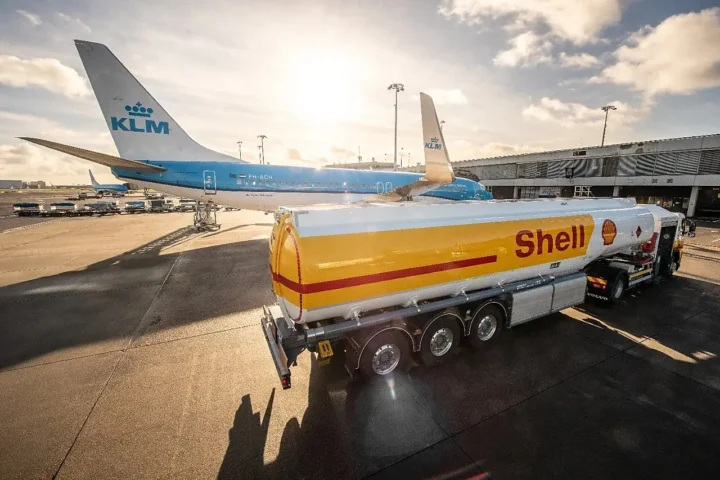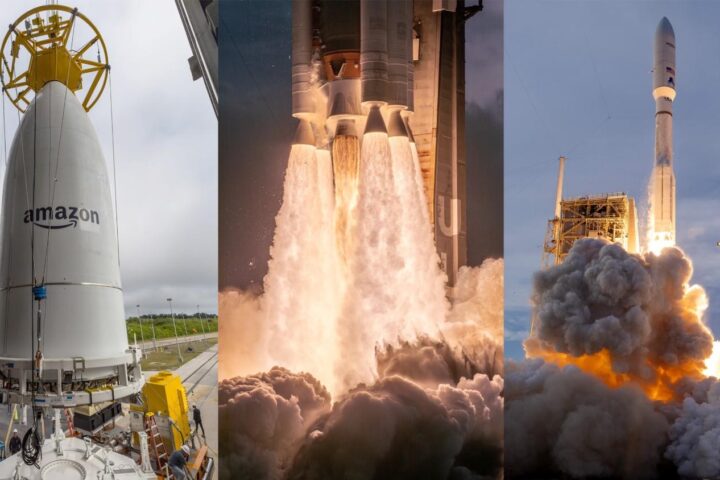Last year, Santander Bank once again positioned itself as one of the main institutions investing heavily in fossil fuels and in the degradation of the Amazon and the Arctic, according to the new annual report, “Banking On Climate Chaos.” Despite boasting on its website of its goal to “achieve net zero carbon emissions by 2050,” the company increased its investments in the fossil industry by 77% in 2023 compared to the previous year: it moved from the 32nd to the 31st position globally with a total of $14.544 billion. In total, they have allocated $79.881 billion since 2016 (when the Paris Agreement was signed) to the fossil fuel business.
The entity led by Ana Botín is also the third largest financier of liquefied fossil gas (LNG)—one of the fastest-growing sectors—with $6.82 billion, the fifth involved in direct oil and gas extraction in the Amazon biome with $35 million (and a total of $1.065 billion since the Paris Agreement), and the sixth in oil and gas activities in ultra-deep waters with $166 million invested.
Santander Bank also continues to finance coal, totaling $232 million in 2023 and $2.026 billion since 2016, and is linked to projects such as hydraulic fracturing (or fracking) in the Argentine Vaca Muerta field or the Rio Grande liquefied natural gas project in the United States.
“Fracking in Vaca Muerta leads to water pollution, the loss of animals, and fruit plants wither. The public hearings have been closed to dissenting voices, and we haven’t been able to participate. It’s the same colonialist process as five hundred years ago. In the midst of an overwhelming process of unbridled capitalism, which plunders territories and produces climate change, we are calling for an awakening to think about other models of development, more compatible with the earth.,” denounces Orlando Carriqueo, Werquen (Messenger) of the Mapuche Tehuelche Parliament of Rio Negro.
Santander Bank is not the only Spanish financial entity on the list. BBVA and CaixaBank also appear. The former holds the 39th position on the list, maintaining its investments from 2022 with $7.182 billion and a total of $67.136 billion since 2016.
For its part, the La Caixa group is in the 47th position and has increased its investment by 8.5% from the previous year with a total of $4.334 billion. It has a total of $27.034 billion since 2016.
The three Spanish banks also share an interest in the exploitation of oil or gas in the Amazon, occupying the ninth and sixteenth positions in that specific ranking.
In total, there are 60 banks that in 2023 invested $705 billion, $32 million more than last year ($673 billion) despite the sustainability promises many of them make. Since the signing of the Paris Agreement in 2016, all have financed the fossil industry with a total of $6.9 trillion.
American banks were the largest financiers of the fossil fuel industry, with 30% of the total contributed in 2023. JP Morgan Chase took the top spot, also linked to the deforestation of the Amazon (and listed among the attendees at COP28 as part of the fossil lobby).
This entity entrusted $40.8 billion to fossil fuel companies, also leading in investing in its expansion. Following it is the Japanese bank Mizuho, which has climbed to the second position both in financing fossil fuels ($37 billion) and in financing the expansion of fossil fuels ($18.8 billion).
The 60 banks analyzed in this report channeled $347 billion in 2023 towards 873 companies expanding fossil fuels, while in 2022, $385 billion was allocated for this purpose. Thus, positively, financing for these expanding companies has decreased compared to the previous year.
“While we urgently need to exit coal, only 5 percent of global coal companies have announced exit dates for their core business. And while the oil and gas wells in operation are more than enough to fuel us until 2050, 96 percent of oil and gas producers continue to open up new fossil fuel assets,” states Katrin Ganswindt, Head of Financial Research at Urgewald and co-author of the report. “Banks that finance this fossil ignorance are complicit in wrecking our climate. “
Similar Posts
Despite its commitment to net-zero emissions, Santander increased its investment in fossil fuels by 77% in 2023, reaching $14.54 billion.
Santander’s green credentials are called into question, as $79.88 billion was directed towards fossil fuels following the Paris Agreement.
With $6.82 billion devoted to LNG, Santander is a major participant in one of the energy markets with the quickest rate of growth.
Amid environmental worries, Santander’s $35 million involvement in Amazon oil production provokes uproar.
Santander has invested almost $2 billion in coal since 2016, with $232 million of that amount coming from 2023 alone.
Concerns about environmental harm are raised by Santander-financed fracking in Argentina’s Vaca Muerta.
Orlando Carriqueo compares the colonialist methods used in Vaca Muerta to persecution in the past.
Following Santander’s example, BBVA and CaixaBank make significant investments in fossil fuels while contesting their green credentials.
Global banks, including Santander, invested $705 billion in fossil fuels in 2023, defying sustainability trends.


















